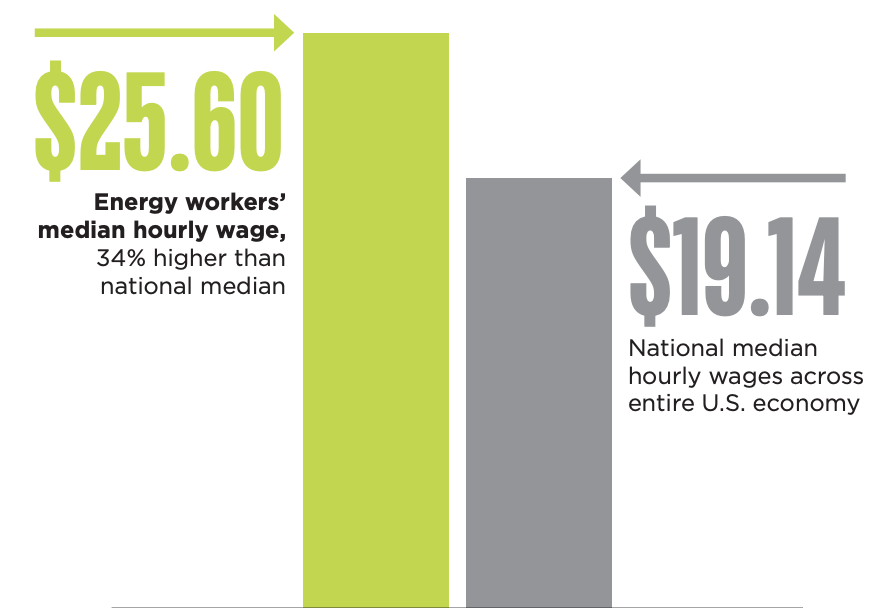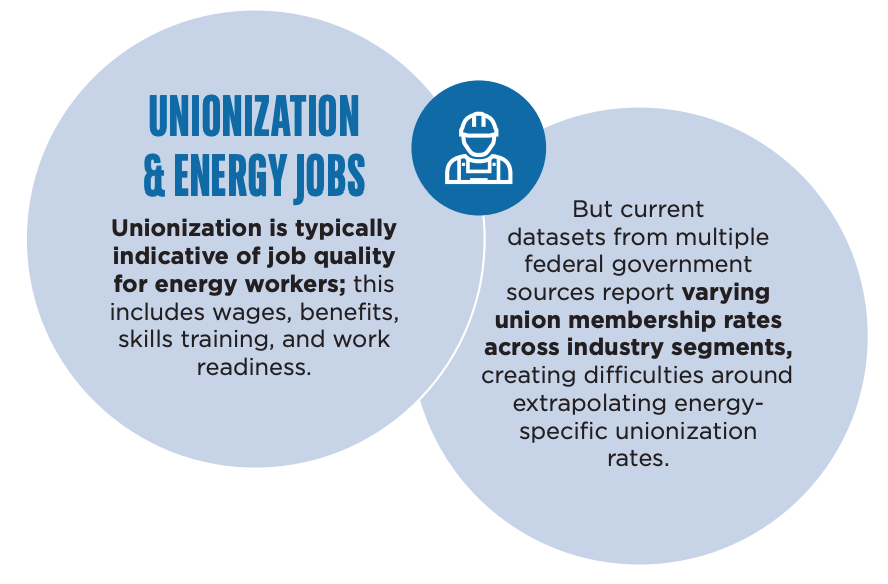Jobs in the United States in the nuclear, coal, and oil sectors are more competitive than those in the renewable energy one, according to a supplemental report out of the U.S. Energy and Employment Report; conducted by BW Research Partnership, the National Association of state Energy Officials (NASEO) and the Energy Futures Initiative.
Firstly, the analysis comes just a week after Joe Biden rolled out a $2 trillion plan that includes billions to boost market for clean energy; and therefore aims at the creation of good paying jobs in the sector.
Secondly, despite the attractiveness of the plan, study’s findings demonstrate that an aggressive shift towards clean energy may face challenges when it comes to the employment replacement and wages for workers itself.


Thirdly, the study finds that, while all jobs in energy sector pay higher rates than the national median hourly wage, around $19,14; those in the nuclear industry have hourly wages at $39,19; while jobs in natural gas pay $30,33; those in coal, $28,69; and oil ones pay $26,59.
On the other hand, hourly wages in wind and solar are around $25,95 and $24,48, respectively. While jobs in the energy efficiency sector, and in the energy storage one pay less than $24,44; and $24,36 respectively, the report says.
Also recommended for you: Cross-border energy infrastructure vital for U.S. and Canada energy trade: API. Click Here.
Jobs in energy better paid; unionization data needs to be more reliable
Consequently, nuclear, electric power transmission and distribution; as well as natural gas and coal industries have the highest wages compared to the national median; in fact, all of these industries have at least 50% higher wages than the rest of the industries in the country.
The report also notes that. “While the energy sector was impacted by the COVID-19 pandemic, the energy industry lost fewer jobs compared to other sectors of the economy; such as Tourism, Hospitality, and Recreation; also, Information and Communications, Retail, and Building and Design.”


Moreover, the report urges a deeper investigation to have a comprehensive understanding of the jobs that will be created, lost; and also changed during the energy transition. It highlights that data on unionization rates is inconsistent across federal agencies, however, and the report urged the government to gather more reliable data.
Finally, the report concludes that thousands of energy employments were lost during the oil price and demand crash in the wake of the pandemic. Indeed, oil workers moved to jobs in clean energy sector, however, they endured a pay cut. In this regard moving aggressively from oil and gas to renewables may have a deeper consequence in jobs than expected before.

